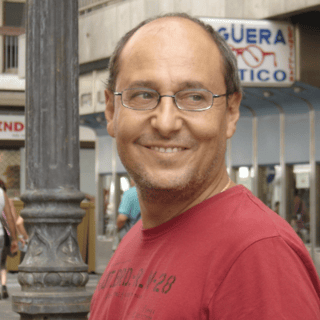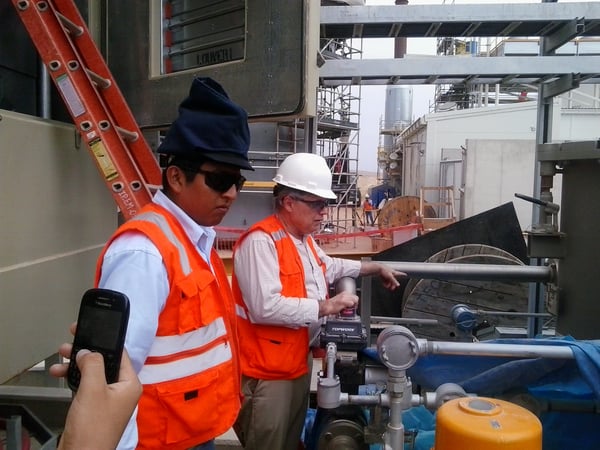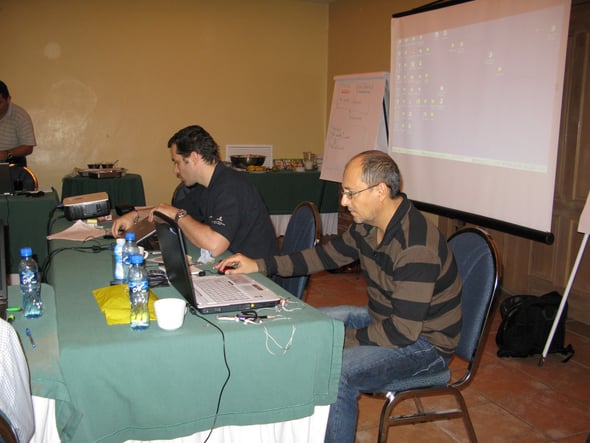Giampiero Lungone is an industrial-technical interpreter in engineering training, working in Italian - Spanish - English. He recently joined the ProZ.com Interpreter Pool, one of the new pools of screened language designed to make it easier for clients to find experts. In this post, Giampiero talks about how he got started in interpreting, a bit about his work, and some considerations to keep in mind if you are thinking of starting a career as an interpreter.
 I started working as an interpreter almost by chance. I was already working as a translator and one day I received this call asking me to replace an interpreter who was ill. I had never done the job, but since this was a very good client and it was a two-day job, I decided to accept. And it opened a whole new world to me. I was really very nervous, but this first experience went extremely well. And it went so well that I have been doing it for the last 20 years. Basically, I accompany an engineer who delivers a training course for operation and maintenance of industrial machinery. These courses go so well that sometimes the trainees call me the “boss”, in the sense that without me the course could not be done.
I started working as an interpreter almost by chance. I was already working as a translator and one day I received this call asking me to replace an interpreter who was ill. I had never done the job, but since this was a very good client and it was a two-day job, I decided to accept. And it opened a whole new world to me. I was really very nervous, but this first experience went extremely well. And it went so well that I have been doing it for the last 20 years. Basically, I accompany an engineer who delivers a training course for operation and maintenance of industrial machinery. These courses go so well that sometimes the trainees call me the “boss”, in the sense that without me the course could not be done.
I work translating from Spanish to English or Spanish to Italian and vice versa for both linguistic combinations. Spanish is spoken in 23 countries and each one has it own way of naming a certain piece of machinery. On the first days of training, the trainees are usually adapting to the course, to my voice, to the engineer. But after some days, we become friends and they start telling me that this is called this and that is called that. I always ask them to tell me the local names used in their work, so I can incorporate them in my work as an interpreter.

The daily confrontation with distinct cultures and customs means that professional growth, especially in tackling hard times and situations (Patagonia, Argentina; Nigeria; Colombia), is constant. For example, the way one can explain something can be friendlier, whereas in other countries it would be better to be more formal. Another thing is that in warm countries the trainees might not be used to work long hours and sometimes a break can take a lot longer than 15 minutes, especially when you work in the plant. The trainees are sometimes called back to work for an emergency and the course has to wait for them. This can be a shock or considered as a negative aspect regarding the trust that is still building. My role is to mediate this whole situation. Furthermore, after working hours you confront yourself with the locals’ daily routines like driving, eating in local restaurants, going to the bank, etc. and you always have to remember that you are not in your country and you have to learn to do things as the locals do. If I can give some advice, always have some cash (dollars or euros) and credit cards and you will be fine in any part of the world.

For an interpreter who works in this field, certain comforts are set aside, and it is a must to adapt to situations that are anything but comfortable. Once I stayed in a container with no running water (this is one of the reasons some places are not recommended for women). Another time I was in a hotel by the beach. Food can sometimes be challenging, especially when the local food is not quite acceptable (I have already contracted e. coli three times). And finding a good Italian restaurant can be very challenging too (I love Italian food). You simply cannot trust a sign written in Italian – like “La Pasta” or something of the sort. So, my recommendation is to always go to 5-star restaurants, especially if you like rare or slightly rare meat. A friend of mine contracted salmonella eating rare meat in a local restaurant. Trips usually last from one week to a maximum of three months, but then I am back home. It is always a great sensation coming back home and bringing along all those memories and experience the job offered me. There are always spectacular sunsets and breath-taking panoramas that will stay with me for the rest of my life.
Working hours are also challenging. Usually I start working from the moment I wake up until almost the moment I go to sleep. Accompanying someone on the job means to be by his side always, at least for the first days. Breakfast, lunch and dinner explaining the local food, getting him in and out of the installations, providing all the necessary tools to accomplish the work, and of course, delivering the training course! After 6 hours of work, you almost totally lose your concentration. Actually, in a training course, the interpreter is the first student the engineer trains, and he has to learn and understand everything in a very short period of time. Of course, I prepare myself before travelling with the material the client furnishes me and this is an enormous help. Personally, I think two breaks in the morning and one in the afternoon are enough to not make me lose my concentration and at the same time, rest. Too many breaks make me lose concentration and don’t help the trainees because it leaves them distracted.
Even in these cases, there is always something to learn about the people you work with and work for. I work in close contact with people and this inevitably gets us talking about so many things: local food, shops, language, politics, etc. But of course, I would never change this job because of everything it taught me to this day. And, I hope very much, to still discover other places and other situations or even go back to places I have already been to.
Thank you, Giampiero!
If you are a professional interpreter, you can use ProZ.com Pools™ to connect with new clients.



